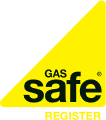New Gas Appliance Installation
Having a new gas appliance fitted?
If you’re about to have a new gas appliance fitted in your home, here’s what you need to know to make sure it’s done correctly and keep your household safe.
These are the first steps we suggest you take:
Finding a Gas Safe registered engineer
- Get in touch with a Gas Safe registered business for advice. You can find a Gas Safe registered engineer or business online using our engineer search. Make sure the engineer you select is qualified to work on the type of gas work you need – you can learn about competency search here.
- Get a quote from two or three different businesses. You’ll need to provide details of the work to be done, the appliance make and model, and location inside your property.
- See if these businesses can provide references from previous customers.
- Make sure the business has public liability insurance. You’ll also want to check with your insurer about whether the job will impact your own insurance.
Checklist before the gas work starts.
Once you’ve chosen your Gas Safe registered engineer, it’s a good idea to confirm the job in writing, including these details:
- Name, address and contact details for both parties.
- Agreed price, the work it covers, the appliances included and materials to be used, methods of payment and any additional work.
- Start date and duration of work, plus any late penalties which have been agreed.
- Confirmation that the business will notify the Local Authority Building Control of any relevant works and when you’ll receive your certificate (if applicable).
- Details of any subcontractors used (including their Gas Safe registration number).
- Refuse/ waste disposal agreements. .
- After sales services such as warranties on appliances, materials and workmanship on necessary remedial work. This includes arrangements to correct any defective work or damage to the property.
Before your engineer starts work at your property, it’s crucial to check they’ve got a valid Gas Safe ID card showing they’re appropriately qualified to carry out the work.
Upon completion of the gas work
Once the work has been completed to the agreed specifications, and you’re happy with it, there are just a few more things to bear in mind:
- You should receive completed commissioning documents from your engineer such as the Benchmark certificate for boilers.
- Your warranty registration needs to be completed and returned by the appliance owner (e.g homeowner or landlord).
- If you’re based in England, Wales, Jersey, Guernsey or Isle of Man, your engineer needs to notify the installation to your Local Authority (unless it’s a flueless cooking appliance).
What is a gas installation certificate?
You should receive one of these after the installation of a heat producing gas appliance. Commonly referred to as a Building Regulations Compliance Certificate they are used to inform the Local Authority of the appliance installation.
You can find out more about Building Regulations Certificates on our gas safety certificates and records webpage.
Annual safety check and service
Remember all gas appliances in your home should be serviced and checked annually, or in accordance with the manufacturer’s instructions, by a suitably qualified Gas Safe registered engineer.
Find out more on our gas safety checks and servicing guide webpage.
Related Help Topics
Featured Content
Buying A New Home
What are the gas safety considerations you need to bear in mind when buying a new property? Find out all the details.
Gas Safety Certificates & Records
What’s the difference between a Building Regulations Compliance Certificate and a Gas Safety Record, and when do you need them? More info here.
Find An Engineer
Looking to find a Gas Safe registered engineer? Find one in your local area or check their details.



